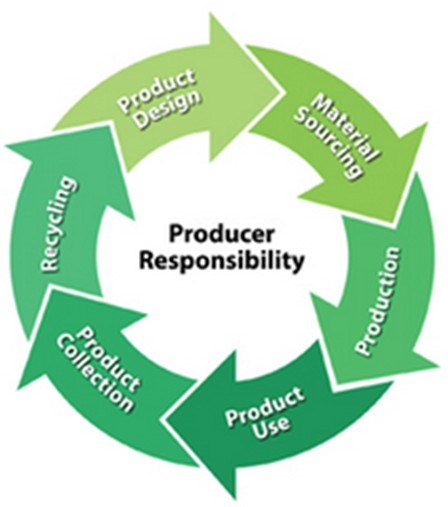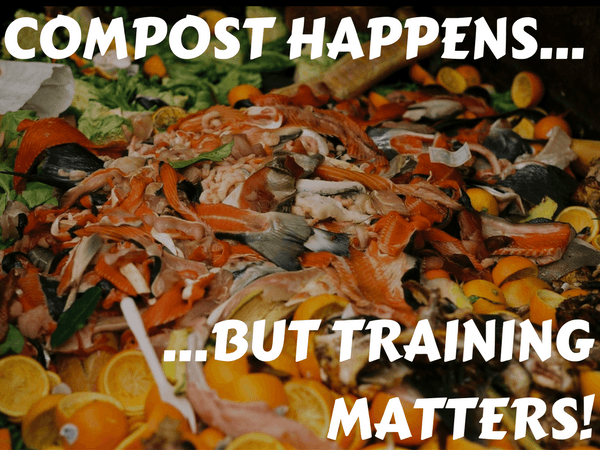The dialogue on the topic of Extended Producer Responsibility (EPR) for Paper, Packaging and Products did not take a Thanksgiving holiday. Below you will find recent perspectives by Sue Maxwell, Mary Lou Van Deventer and Dan Knapp on how EPR is operating in British Columbia and its relevancy for California and the U.S. This segment of the dialogue began on November 1 with a post by Dan Knapp.
You can find the full archive of discussions on EPR and more topics available here via the Green Yes group
November 25, 2016
Sue Maxwell
Canadian consultant promoting British Columbia’s Extended Producer Responsibility for Paper Packaging and Products
Hi Dan,
I think this will be my last post to Green Yes as I see the futility of discussing our situation here in BC with people fully committed to not understanding. Please note the article shown here is from 2012 before there was any EPR program in BC (which started May 2012) and relates to the challenges in funding recycling programs through taxpayer dollars (which is why many BC municipalities asked for a program).
I do not have time to correct all of the inaccuracies in posts, not the least being called an EPR apologist. Other concerns include using a document funded by industry to avoid paying their fair share of costs as some kind of proof to avoid EPR, ignoring the fact that many of the existing PPP recyclers are now paid by the program to do the same work (and sometimes more) because the work available increased not decreased, that the program is improving the standards to reduce contamination (when in the past many municipalities moved to single stream recycling to reduce collection costs because the processing costs were not theirs), that many communities that did not have recycling now do (creating more jobs), that the types of materials that can be recycled increased in most communities.
The conversation I had hoped to have was not traditional recycling versus EPR because in reality both systems can work together, but instead what can be learned from the implementation of EPR in BC because as a system, it is a very good start, but now that we have some programs that have been running for a while, we can see some areas that need improvement.
- As the Recycling Regulation in BC is outcomes based, we need to change some of the outcomes. Some ideas may be:
- Add an awareness target.
- Have higher targets for programs renewing plans so there is continuous improvement.
- Have a region-by-region discussion to set minimum depot number and locations for each one based on population but also flow of commerce and waste.
- Implement outcomes around local and social benefits and impacts (particularly for programs where significant infrastructure already exists).
- Look at how to set fair compensation policies given that most forms of competition between programs will be a race to the bottom, maybe a Utilities Commission model or something else.
- Implement a fine system like they have in Quebec for when programs do not meet their minimum targets.
- Put in targets for reduce/redesign or at least ask for the first plan to have clear systems on how the program will promote this and the second plan must have fixed targets.
- Ask for differential fees based on environmental impact, not net cost to the program.
- Create a truly industry – special interest independent body to monitor EPR programs (this last one I credit to D. Kinsey).
So if anyone wishes to discuss the BC system or suggestions for improvement should it be considered in your area, I am happy to discuss but no longer on this listserve.
Sincerely,
Sue Maxwell
November 26, 2016
Mary Lou Van Deventer
Principal, Urban Ore, thought leader of U.S. recycling movement and board member of British Columbia Bottle Recycling and Depot Association (BCBRDA)
Hi Sue –
Even if you don’t post to this listserv anymore, I hope you’ll still read posts by others. As a board member of the British Columbia Bottle Recycling and Depot Association (BCBRDA), I’m familiar with BC’s situation and have a couple of observations based on your comments. Your comments are in blue, and my responses are in black.
“Other concerns include using a document funded by industry to avoid paying their fair share of costs as some kind of proof to avoid EPR . . .” The study Dan quoted, which showed that EPR in Europe failed to reduce discarded packaging per capita but cultural pressures and traditional recycling in the US did, was indeed funded by the grocers’ association. But it was done using governmental data, and the analysts and authors were SAIC, whose work is internationally respected. You can’t dismiss the results by heaping scorn. For us to have a good debate, please join the issue.
“Ignoring the fact that many of the existing PPP recyclers are now paid by the program to do the same work (and sometimes more) because the work available increased not decreased.” Some businesses’ work may have increased, but bottle depots’ work – and income – has decreased, and the EPR system is undermining the popular and previously effective bottle deposit system. Citizens are encouraged to forego redeeming their deposits at bottle depots, and chuck their bottles into curbside boxes. The citizens get nothing back, and the steward can split the redeemed deposits with the steward’s chosen processors. In the transition, longtime processors lost their contracts and share of bottle-redemption income suddenly. In one case a processor was given no notice whatsoever (was told by a trucker), and lost 60% of his income literally overnight. Some bottle depots are going out of business or are looking for other income to support their longstanding family or nonprofit enterprises. The PPP steward is forcing them to their knees and watching them struggle while it drives them under. Meanwhile it has paid its own staff hefty salaries and has banked a $33 million cushion in two years.
As if today the bottle stewardship monopoly Encorp has “offered” the depots a new (take-it-or-leave-it) contract and is pressuring them to sign by December 7, even though the current contracts don’t run out for six months. Encorp’s own study shows the depots’ overall expenses have increased 40% in the last five years, including a 40% increase in the minimum wage, but the “offer” increases payments to depots by only 5.7% over a five-year period and applies only to certain container types.
Since the stewards for PPP and bottles operate out of the same offices, it would be hard to imagine the efforts aren’t coordinated. Encorp has even found ways to pit depots against each other, but the depots are cooperating again to try to amend this latest “offer” in order to survive.
“The conversation I had hoped to have was not traditional recycling versus EPR because in reality both systems can work together, . . .” That sounds hopeful, but also on November 23 you used the phrase “previous recycling system” to describe the traditional system. In reality, in BC there hasn’t been any working together, unless one would say Bambi and Godzilla can work together. (See the 90-second video “Bambi vs. Godzilla,” https://www.youtube.com/watch?v=n-wUdetAAlY.) Buddy Boyd of Gibson’s Recycling Depot has complained publicly for years that recyclers weren’t consulted in structuring the new system.
All current recyclers with access to free markets need to understand that EPR intends to replace their industry – and perhaps them – with a new centrally controlled market intervention. Perhaps without being consulted, today’s recyclers would become “the previous system”; they would become contractors instead of independent businesspeople; and de facto monopolies would “offer” them contracts that they might be unable to negotiate. The monopolies would take some market income first for themselves, and then distribute what they choose to “offer” their contractors. Fine-tuning of Soviet-style industrial goals would be done by lobbyists and legislators. Heidi Sanborn of the California Product Stewardship Council told the Northern California Recycling Update that EPR would require lots more lobbyists on recycling’s side, because producers will surely have lots of them.
Final note: I am able to make these comments because my independent company doesn’t have a contract with any EPR stewardship organization. BC’s EPR contractors have been forced to agree to gag clauses that forbid them from criticizing their stewards and, in some cases, their elected officials. The penalty for violation is to lose the contract, and with it the business.
Since we all want Zero Waste, the next question is what cultural practices we’re willing to implement to achieve the goal. Is it Zero Uber Alles? Are environmental and cultural justice necessary? Or optional? In BC, EPR is pounding today’s small businesses and their owners into the ground so it can find tomorrow’s more docile contractors.
And they needn’t look for sympathy. As the BC Ministry of the Environment told Canadian TV, “This is a results-based program and the Ministry as a regulator is not involved in the business-to-business operations of stewardship programs.” So the monopolies can chew people up and the regulator promises not to watch.
Recycling is the true industrial child of Earth Day. Many of today’s recyclers are first- or second-generation visionaries who have risked everything and devoted their lives to building the industry that EPR theorists think of as “the previous system,” ripe for takeover. It wasn’t easy, but so what? To follow the example of the US’s incoming Dear Leader, first insult them, then grind them down, then get rid of them and install the replacement system. Does that really achieve better Zero Waste results? No, say some reports from Europe. Sure, say BC’s semi-audited reports whose data can’t be checked. The data generators can’t talk.
There are easier ways and more just ways to achieve Zero Waste through industrial development that supports today’s recyclers. But apparently the oligarchs want to be taken care of first. The process has already begun in the US EPA’s structural documents.
November 28, 2016
Dan Knapp
Principal Urban Ore, thought leader of U.S. recycling movement and former professor of Sociology, University of Illinois, Springfield
Hello Susan: I believe I’m one of the people you labeled as “fully committed to not understanding” EPR in your last post that I saw. Maybe my 21-page dissection of EPR documents, the one called “Feeling the Elephant,” didn’t get to you, or perhaps you didn’t read it.
If you didn’t read it, I understand. It’s long and necessarily a bit academic, and there are lots of quotes from multiple BC sources. But I spent dozens of hours working on it, and hundreds, even thousands of hours before that tracking what’s happening with EPR in BC. Whatever else it may be, it’s the opposite of a commitment on my part to “not understanding” EPR in BC.
It’s just that the more I understand EPR in BC, the less I like it.
•••••••
That said, I believe that you are a fervent believer in product redesign and product substitution. That’s great! So you should be happy to know that in California recent election, the grocery retailers were great supporters of product redesign and substitution. Just this month they helped us win a great victory for source reduction, the first “R” on the “Reduce, Reuse, Recycle” hierarchy. The California Grocer’s Association was the second biggest funder of our Yes on 67 campaign. Albertson’s/Safeway, a large supermarket chain, was first. One of the biggest of the environmental organizations that put up money was our own Save the Bay.
We bag ban proponents were still outspent nearly two to one. The Society for the Plastics Industry and its surrogates put op $6.4 million to the banning group’s $3.6 million. This time though, the big money lost its bet.
Almost 54% of the voters said yes, ban the bags. 47% said no to the Plastics Industry’s attempt to hobble the bag ban with excessive regulation leading to increased business costs and greatly reduced benefits.
Strangely, the plastics industry put the measure on the ballot, then poured money into the campaign to get it voted down. They did this because they were hoping to undo a ban already enacted by the elected legislature. Going to the voters was a last resort, after their lobbyists had failed.
••••••••
The harm caused by these single-use plastic bags will soon abate. The benefits to wildlife, to parklands, to wetlands, to trees and shrubs, to agriculture, to citizens, to businesses, to beaches and rivers, and to the Pacific Ocean will be immense.
California recyclers sided overwhelmingly with the grocers in this hard fight to win hearts and minds. Our NCRA trade association members tabled at high traffic venues like grocery stores to get people to understand the differences, passed out informational leaflets, and provided boots on the ground by knocking on doors and talking with voters. Environmental organizations like Sierra Club and Earth Island and Greenpeace put out mass-market mailers that correctly identified Prop 67 as good, and 65 as a hoax.
The plastics industry’s competing initiative, prop 65, can be seen as a naked attempt to split the Prop 67 coalition of grocery retailers, environmental groups, and recycling advocates. 65 was clever: too clever. Prop 65 would start by banning grocery stores from keeping any money derived from sale of bags to their customers. Next, plastics industry masterminds harnessed the word “progressive” to their branding strategy, a phenomenon I’ve often called the “cooptation of symbols.” “Progressive” in this iteration meant preventing reusable/compostable bag money from going to the greedy grocers who everyone knows are interested only in runaway profits. So stick it to the grocers, said the plastics industry in effect. Finally, Prop 65 mandated that this money from sale of bags had to be handed over to the state, which then had to put it into an “environmental fund” of some sort, to be managed in some way.
Why frame the issue this way? Because the local bag bans had already shown that they could create product substitution and product innovation nearly overnight. That success was what the plastics manufacturers feared most.
Berkeley was one of the first California cities to pass a bag ban that stuck; our county of Alameda soon did the same. I lived and shopped through the change, as well as an earlier Styrofoam ban that passed earlier. Both changeovers were seamless, easy. Grocers and other retailers still needed bags, so they found suppliers who would make bags from recycled plastics, thus “closing the loop” and making the “circular economy” more real. (Reusable bag manufacturers also supported 67 and worked against 65.) Since the bags cost more than the throwaway single-use bags, the grocers offered them to customers for a small charge; usually 50 cents. Customers had an option; they could also buy the traditional paper bags for 10 cents, about four cents less than they cost. The retailers put their branding on the sturdy new reusable bags while learning from customers that those bags are truly useful in multiple ways, and therefore few get thrown away. The more the bag is reused, the more bang for the advertising buck.
At our house we have some of these reusable bags that have been filled and emptied at least fifty times. That’s “reduce” in action. It looks like they will keep on being useful for years.
••••••
Here’s one of many possible scenarios: Prop 65 was the clever wedge issue that the plastics industry hoped would split the grocers from the environmentists and recyclers. Enviros would cheer the funding windfall, and join the attack on the grocer’s sales rights because after all, it’s progressive to go after the capitalists.
But the alliance of grocery stores and enviros held firm, and 65 lost decisively.
••••••
You claimed in an earlier post that BC cannot ban products. Accordingly, you seem to believe there are only have two options up there, EPR and the “previous recycling system.” You believe the two can get along, but the experience of EPR so far is a history of abuse of the “previous” operators while the government affects not to care. You want to tinker with EPR to make it better, and offer a laundry list of what seem to this observer like arcane remedies for its weaknesses, which are not clearly stated. That is, the remedies seem arcane compared to keeping homegrown recyclers healthy, building new fee-based collecting and sorting infrastructure, and banning unrecyclable and troublesome forms of packaging in order to spur product redesign and design for recycling and reuse.
I asked you for proof that BC can’t ban products, given that bans lead directly to what you say you want. Lacking proof, I’m not sure what parts of California’s initiative process might be legal in Canada, but research for this letter by Mary Lou turned up the word “abrogative,” which is a term of art used in Europe. Abrogative initiative: try it out on your contemporaries. Or look it up on your computer.
Actually, I just did look up abrogative, using the Oxford University Dictionary. It means, “repeal a law,” so it doesn’t fit prop 67, which upheld the bag ban law that the legislature had already passed. You would need another kind of initiative to ban a product from commerce. Urban Ore’s attorney Mr. John Moore has told us that you have up there already something similar to our initiative law, which was a constitutional amendment that passed over a hundred years ago.
Thanks for helping me sort these things out. There are still lots of things to learn and questions to resolve.





